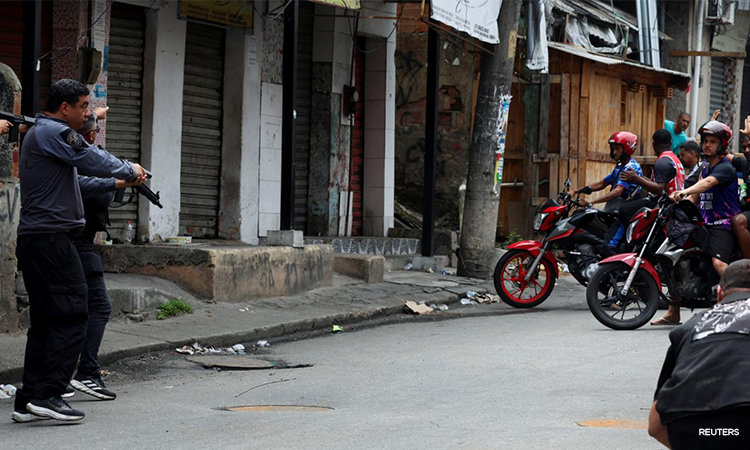PH, Indonesia reach deal for Mary Jane’s Veloso return- Marcos
Metro Manila, Philippines— President Ferdinand Marcos Jr. announced that convicted overseas Filipino worker (OFW) Mary Jane Veloso will be coming home to the Philippines following a deal with the Indonesian government.
“After over a decade of diplomacy and consultations with the Indonesian government, we managed to delay her execution long enough to reach an agreement to finally bring her back to the Philippines,” Marcos said in a statement on Wednesday, Nov. 20.
Marcos said Veloso’s story resonates with many Filipinos who remain to be a victim of circumstances. The chief executive also thanked the Indonesian government for their goodwill.
“I extend my heartfelt gratitude to President Prabowo Subianto and the Indonesian government for their goodwill. This outcome is a reflection of the depth of our nation’s partnership with Indonesia—united in a shared commitment to justice and compassion,” said Marcos.
In a report from Reuters, Prabowo’s office said Veloso would serve the rest of her sentence in the Philippines, citing that the reason for the transfer was “diplomacy and reciprocal partnership in law enforcement.”
Marcos’ statement comes a day after the Department of Foreign Affairs confirmed on Tuesday that talks with the Indonesian government are underway for the possible transfer of Veloso back to the Philippines.
“The Department of Foreign Affairs wishes to confirm that the governments of the Philippines and Indonesia have been engaged in discussions regarding the possible transfer of Mary Jane Veloso to the Philippines to serve her sentence in a Philippine facility,” the DFA said in a statement.
“The DFA joins the Filipino nation in the hope and prayers for a successful resolution of this issue, one which shall do justice to Ms. Veloso and her family while strengthening the deep bonds of friendship between the Philippines and Indonesia,” it added.
Foreign Affairs Undersecretary Eduardo De Vega recently told reporters that the Philippine government is hoping for a “positive result” soon.
Last week, the Indonesian government said that it is exploring the possibility of transferring foreign prisoners, including a Filipina drug mule on death row, to their home countries upon request.
A statement from Indonesia's Coordinating Ministry for Legal, Human Rights, and Immigration noted that such transfers could be facilitated through bilateral negotiations or the implementation of a new policy.
Philippine Ambassador to Indonesia Gina Jamoralin recently held a meeting with Indonesia's Coordinating Minister for Law, Human Rights, and Immigration, Yusril Ihza Mahendra, to discuss the case of Mary Jane Veloso.
“This matter has been discussed internally within Kemenko Kumham Imipas and has also been brought to the attention of President Prabowo. We are formulating a policy to resolve the issue of foreign prisoners in our country, either through bilateral negotiations or by devising a policy related to what is referred to in English as the transfer of prisoners,” said Yusril.
If the Philippine request is granted, Veloso would serve the remainder of her sentence in the country subject to conditions determined by Indonesia's court rulings. The government would then assume responsibility for her rehabilitation and decide whether to grant clemency or remission.
Earlier this year, Foreign Affairs Secretary Enrique Manalo reiterated the Philippines' appeal for clemency for Veloso.
Advocates have argued that her status as a trafficking victim, combined with her prolonged detention, justifies clemency or sentence reduction.
Veloso was arrested in 2010 at Yogyakarta Airport in Indonesia with 2.6 kilograms of heroin in her luggage.
She has consistently maintained her innocence, claiming she was duped by a recruiter who had trafficked her under the guise of securing a job as a domestic helper.
In 2015, Veloso was granted a last-minute reprieve from execution following appeals from the Philippine government and public outcry.
In 2020, a Nueva Ecija court found her recruiters guilty of illegal recruitment.





